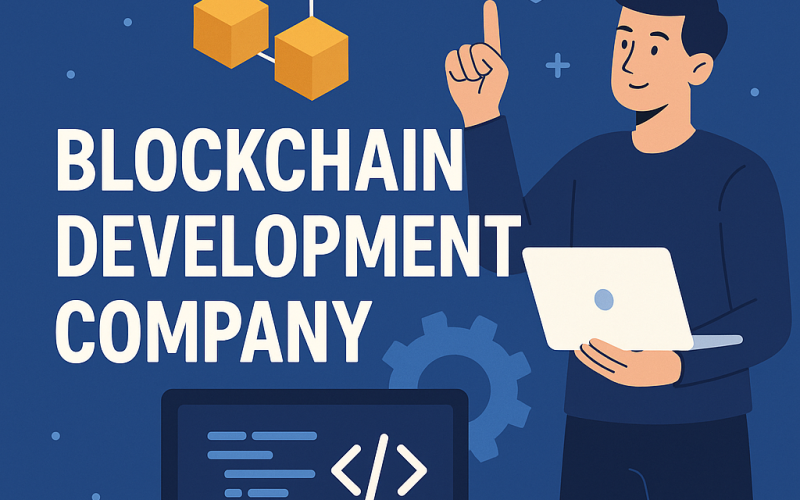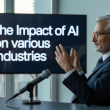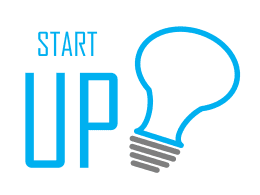Artificial Intelligence (AI) and blockchain are among the most disruptive technologies reshaping the digital landscape. AI enhances automation, efficiency, and intelligent decision-making across industries, while blockchain ensures security, transparency, and decentralization in data handling. But as both evolve, a compelling question arises: Is the future of AI dependent on decentralized technologies like blockchain?
This in-depth article explores the growing intersection between AI and blockchain, the potential benefits of their integration, real-world applications, key challenges, and whether decentralized infrastructure is essential for AI’s sustainable and ethical future.
Understanding AI’s Limitations in a Centralized World
AI’s success largely depends on access to vast, high-quality datasets. Most AI systems today are centralized, meaning they are controlled by major corporations with access to private user data and proprietary algorithms. This centralized approach has significant drawbacks:
-
Data Privacy and Ownership: Users often lose control over their data, leading to privacy breaches and misuse.
-
Bias and Opaqueness: Many AI systems operate as “black boxes,” making it difficult to trace how decisions are made.
-
Concentration of Power: A handful of tech giants dominate the AI landscape, limiting innovation and competition.
These challenges have led to increasing calls for ethical AI development — emphasizing transparency, user control, and trust. This is where decentralized technologies like blockchain offer transformative potential.
How Blockchain Can Reinvent AI
Blockchain is a decentralized, immutable ledger system that provides transparency, security, and verifiability. When combined with AI, it can address several core issues affecting traditional AI development:
1. Data Privacy, Security, and Ownership
With blockchain, users can retain control over their personal data and selectively grant access to AI models via smart contracts. This empowers users while ensuring that AI systems receive clean, verifiable, and permissioned data. Projects like Ocean Protocol are already facilitating decentralized data sharing for AI training.
2. Transparency and Auditability
Blockchain can record AI model changes, decisions, and outcomes in a tamper-proof ledger, making it easier to audit and explain AI behavior. This is critical for ensuring AI fairness, especially in sensitive applications like hiring, credit scoring, and criminal justice.
3. Incentivizing Data Sharing
Blockchain-based tokens can reward users for sharing their data with AI systems. This creates a mutually beneficial relationship — users get compensated, and AI models gain access to more diverse, real-world data.
4. Decentralized AI Marketplaces
Blockchain enables the creation of peer-to-peer marketplaces for AI models, datasets, and services. This reduces reliance on centralized platforms, democratizing access and fostering innovation. SingularityNET is a prime example — a decentralized platform where developers can monetize AI tools and collaborate globally.
Real-World Examples of AI-Blockchain Integration
Numerous startups and projects are already blending AI and blockchain to create groundbreaking solutions:
-
SingularityNET: A decentralized AI marketplace where developers can share and monetize AI services. It enables AI agents to work together across borders in a scalable, open ecosystem.
-
Ocean Protocol: A decentralized platform that unlocks data for AI training through secure sharing mechanisms, ensuring privacy and compliance with data regulations.
-
Fetch.ai: Combines multi-agent AI systems with blockchain to optimize operations in areas such as energy grids, mobility, and supply chains.
-
DeepBrain Chain: A blockchain-powered AI computing platform that reduces the cost of training AI models by decentralizing computing power.
These projects highlight the real potential of merging blockchain’s trust architecture with AI’s learning capabilities.
Why Decentralization Matters for the Future of AI
The future of AI isn’t just about better algorithms — it’s about creating systems that are ethical, fair, transparent, and inclusive. Decentralization can support this mission in several important ways:
-
Ethical AI Development: Blockchain helps enforce data provenance, consent, and auditability — cornerstones of ethical AI.
-
Reduced AI Bias: Access to more diverse, user-controlled datasets can help reduce bias in AI models.
-
Resilience and Robustness: Decentralized networks are less vulnerable to single points of failure, censorship, or control.
-
User Empowerment: Through blockchain, users can actively participate in and benefit from the AI economy.
Challenges in Combining AI and Blockchain
Despite the promising potential, integrating AI with blockchain is not without hurdles:
1. Scalability
Blockchain networks, particularly older ones like Bitcoin and Ethereum (pre-upgrades), struggle with high transaction throughput. AI models, especially those involving real-time processing, require significant computational resources that decentralized systems may struggle to deliver efficiently.
2. Latency and Performance
Decentralized networks may introduce latency that hinders real-time AI operations, such as autonomous vehicles or real-time fraud detection.
3. Interoperability and Complexity
Bringing together two complex ecosystems — AI and blockchain — requires robust interoperability frameworks, development expertise, and standardization.
4. Energy Consumption
Some blockchain consensus mechanisms (like Proof-of-Work) are energy-intensive. This conflicts with sustainability goals in AI development. However, newer consensus models like Proof-of-Stake and Directed Acyclic Graphs (DAGs) are offering more eco-friendly solutions.
Is Blockchain a Prerequisite for AI’s Future?
To answer the core question: Is the future of AI dependent on blockchain? The answer is not strictly yes, but blockchain is increasingly essential for building ethical, transparent, and user-centric AI systems.
AI can certainly continue to develop in centralized environments. However, those systems will likely face mounting regulatory scrutiny, trust issues, and ethical challenges. Blockchain provides a decentralized infrastructure that can address many of these concerns, potentially becoming a key pillar of responsible AI development.
Conclusion: A Symbiotic Future
AI and blockchain are not competing forces — they are complementary technologies. Together, they can create a more equitable, transparent, and secure digital world. While AI thrives on data and intelligence, blockchain ensures trust and decentralization in how that data is managed and accessed.
As we move into a future where data privacy, algorithmic accountability, and user empowerment become critical, the convergence of AI and blockchain may define the next era of digital transformation.
Organizations, developers, and policymakers who embrace this synergy early on will be best positioned to lead in the new decentralized AI landscape.












